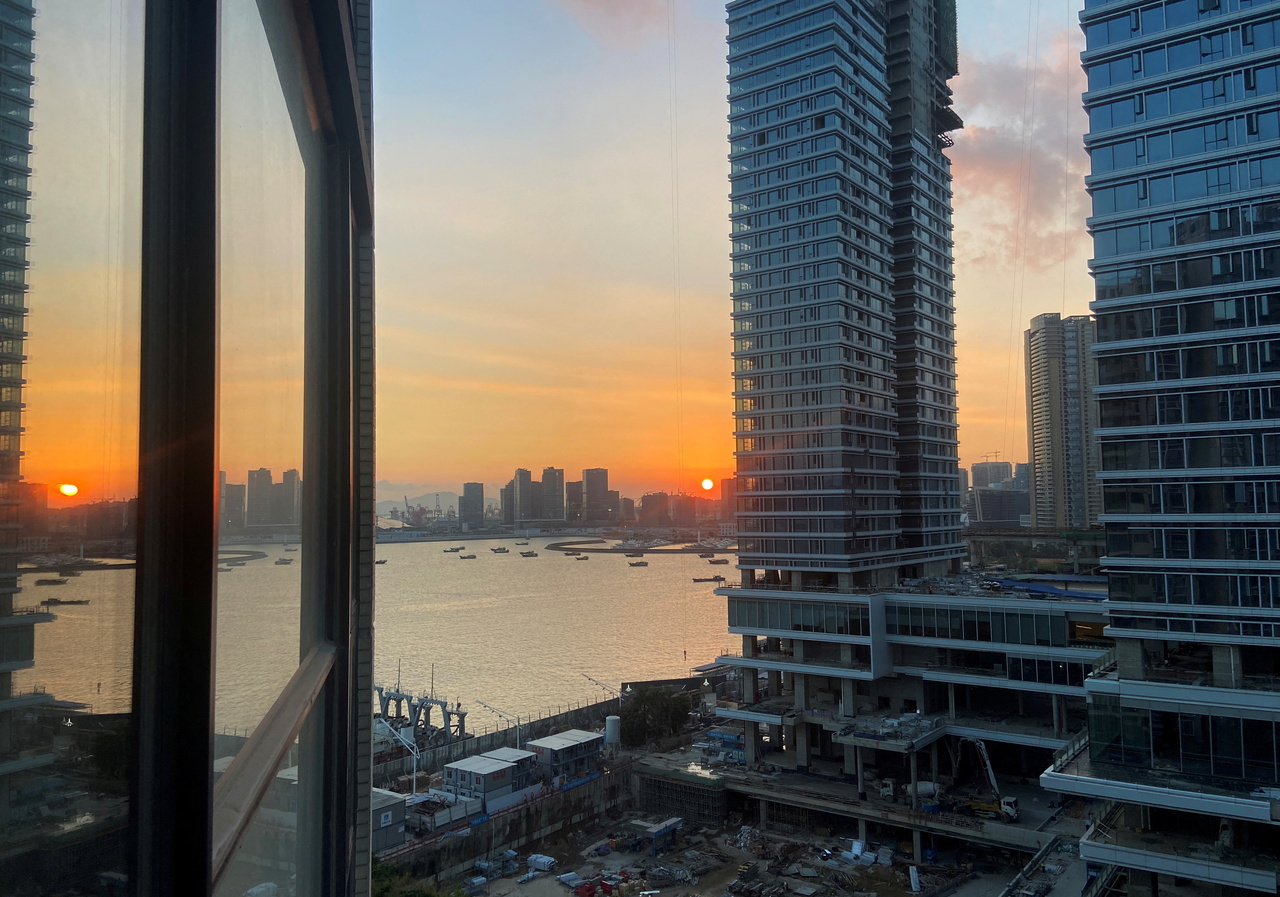China's home prices drop for eighth month amid Covid-19 lockdowns
Sign up now: Get ST's newsletters delivered to your inbox

New home prices rose 0.7 per cent from a year earlier, the slowest pace since October 2015.
PHOTO: REUTERS
BEIJING (BLOOMBERG) - China's home prices fell for an eighth month in April as measures to alleviate the real estate downturn failed to revive buyer confidence amid Covid-19 outbreaks.
New home prices in 70 cities, excluding state-subsidised housing, dropped 0.3 per cent from March, the fastest decline in five months, National Bureau of Statistics figures showed on Wednesday (May 18).
Values slid year on year for the first time since 2015.
The deepening price slump is another blow to the embattled property sector, which has been hit by strict coronavirus lockdowns and a spreading liquidity crisis among developers.
China's government has vowed to support the housing market as part of efforts to halt a slowdown in the world's second-largest economy.
"It's an alarming sign that the home-market stress has continued long enough" to make a recovery more difficult, said Mr Yan Yuejin, research director at E-house China Research and Development Institute. "The year-on-year decline underscores deteriorating fundamentals in the residential property sector."
In a note earlier this week, Nomura Holdings economists led by Dr Lu Ting wrote that a rise in uncertainty, a lack of confidence, an increase in the unemployment rate and falling income growth have all contributed to home market stress.
The central bank on Sunday made a rare cut to the minimum interest rate for first-time mortgages.
The local authorities have offered a variety of housing incentives, including lowering down payment requirements and even encouraging families with more children to own multiple properties.
Such measures have done little to arrest the housing slump, which has been exacerbated by the country's severe response to the latest coronavirus wave. Home sales by value plunged 49 per cent last month from a year earlier to the lowest level since late 2015, official figures showed on Monday.
Shanghai, which is slowly emerging from a six-week lockdown, saw new-home prices fail to rise for the first time since November 2020.
Across all the 70 cities monitored, values in the secondary market, which is subject to less government intervention, declined a wider 0.28 per cent from a month earlier.
"Weak home buyer confidence remains a key hurdle, while Covid-19's spread adds near-term threats," Bloomberg Intelligence analysts including Kristy Hung wrote in a note before the figures were released. "Sentiment may improve only with a turnaround in distressed developers' liquidity, which looks unlikely in the near term without stronger policy support."


